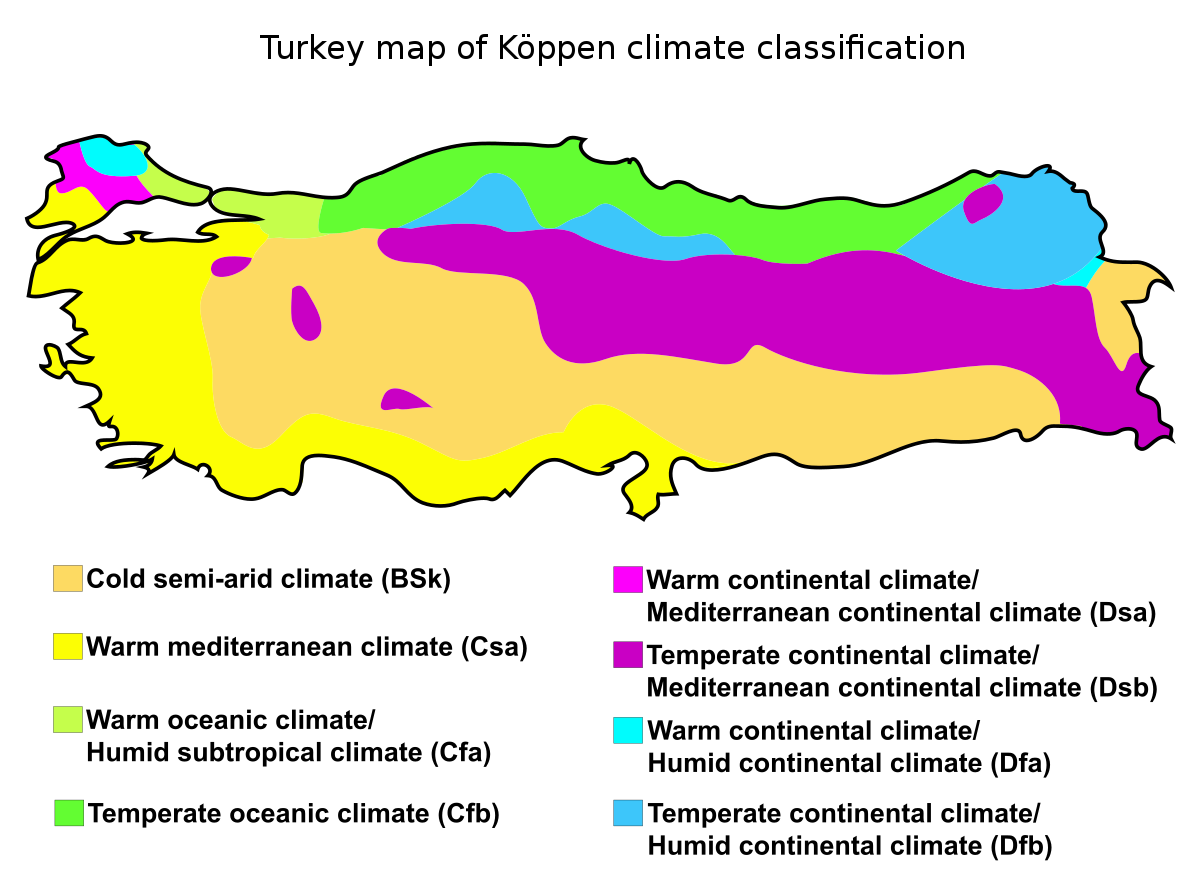Turkey is a large country that straddles Eastern Europe and Western Asia, with diverse landscapes ranging from Mediterranean coastlines to rugged mountains. This variety in geography leads to significant differences in climate and temperatures across the country. If you’re planning a trip to Turkey, it helps to have an understanding of the temperature ranges you can expect in different regions during different seasons.
Overview of Turkey’s Climate
-
Turkey has a generally temperate climate with hot, dry summers and mild, wet winters.
-
The coastal regions bordering the Aegean and Mediterranean Seas have hot summers and mild winters
-
Inland regions like Central Anatolia experience more extreme temperatures with very cold winters and hot summers.
-
The northeast receives the most precipitation, while inland areas tend to be drier.
-
At higher elevations in mountainous areas like the Pontic Mountains along the Black Sea, winters are very cold with heavy snowfall.
Average Temperatures by Region
Here’s an overview of typical temperatures in some of Turkey’s major cities and regions
Istanbul
- Summer: Highs of 28°C (82°F), lows of 18°C (64°F)
- Winter: Highs of 10°C (50°F), lows of 5°C (41°F)
Ankara (Central Anatolia)
- Summer: Highs of 31°C (88°F), lows of 16°C (61°F)
- Winter: Highs of 4°C (39°F), lows of -4°C (25°F)
Izmir (Aegean Coast)
- Summer: Highs of 33°C (91°F), lows of 22°C (72°F)
- Winter: Highs of 17°C (63°F), lows of 7°C (45°F)
Antalya (Mediterranean Coast)
- Summer: Highs of 34°C (93°F), lows of 22°C (72°F)
- Winter: Highs of 17°C (63°F), lows of 7°C (45°F)
Erzurum (Northeastern Mountains)
- Summer: Highs of 29°C (84°F), lows of 13°C (55°F)
- Winter: Highs of -4°C (25°F), lows of -18°C (0°F)
As you can see, coastal areas generally have very hot summers and mild winters without extreme cold. Inland regions see greater temperature extremes, while mountainous areas can get quite cold even in summer.
Average Monthly Temperatures in Istanbul
To give a closer look, here are the average monthly high and low temperatures throughout the year in Istanbul:
| Month | Average High | Average Low |
|---|---|---|
| January | 10°C (50°F) | 5°C (41°F) |
| February | 11°C (52°F) | 5°C (41°F) |
| March | 13°C (55°F) | 7°C (45°F) |
| April | 18°C (64°F) | 10°C (50°F) |
| May | 23°C (73°F) | 14°C (57°F) |
| June | 27°C (81°F) | 17°C (63°F) |
| July | 29°C (84°F) | 20°C (68°F) |
| August | 29°C (84°F) | 21°C (70°F) |
| September | 26°C (79°F) | 18°C (64°F) |
| October | 21°C (70°F) | 14°C (57°F) |
| November | 16°C (61°F) | 10°C (50°F) |
| December | 12°C (54°F) | 7°C (45°F) |
Istanbul sees hot summer weather from June through August with highs reaching around 29°C (84°F). Winters are cool but generally above freezing with average highs of 10-13°C (50-55°F) and lows of 5-7°C (41-45°F) from December to February.
Factors Influencing Temperatures
Several factors lead to this range of temperatures across Turkey:
-
Proximity to water – Coastal areas are moderated by the surrounding seas which keeps temperatures relatively mild year-round. Inland areas show greater extremes.
-
Latitude – Turkey’s geographical latitude near 36-42°N contributes to a mild climate overall. Southern areas are warmer than the north.
-
Elevation – Mountainous regions are significantly cooler than low lying areas, especially in winter.
-
Continental effects – Anatolia’s position within Asia means it is influenced by continental climate patterns with hot summers and cold winters.
-
Precipitation – Wetter areas like the Black Sea region are generally cooler than drier central and southeastern areas.
-
Urban heat islands – Major cities like Istanbul and Ankara can be several degrees warmer than surrounding rural areas.
Regional Variation
To summarize Turkey’s diverse climate:
-
The Aegean and Mediterranean coasts have hot, dry summers and mild, rainy winters.
-
Central Anatolia sees extreme temperatures with very cold winters and hot summers.
-
The Black Sea region has cool oceanic temperatures and gets the most rainfall.
-
The Southeast near Syria is extremely hot and dry in summer.
-
Mountainous areas experience much cooler weather than lower elevations.
So when planning your visit, make sure to consider the specific region and time of year to know what clothing and temperatures to expect!
The Bottom Line
With its position straddling two continents, Turkey sees diverse temperatures ranging from hot Mediterranean climates to frigid mountain peaks. While the coast enjoys mild weather year-round, inland regions see scorching summers and freezing winters. In cities like Istanbul, expect hot summer highs around 29°C (84°F) and cooler winters with average temperatures of 10-13°C (50-55°F). The regional and geographic variation means you’ll encounter significantly different conditions across Turkey.

Find a forecastSearch for a place, autocomplete also includes a ‘Use my location’ option and your recent locations
Please choose your location from the nearest places to :
How to Take the Temperature of Your Turkey
FAQ
What is the hottest month in Turkey?
What’s the temperature in Turkey for the next two weeks?
|
|
Conditions
|
|
|
Day
|
Temperature
|
Weather
|
|
Sun Aug 25
|
88 / 84 °F
|
Sunny.
|
|
Mon Aug 26
|
90 / 82 °F
|
Sunny.
|
|
Tue Aug 27
|
89 / 82 °F
|
Sunny.
|
Is it hot or cold in Istanbul now?
|
Now
|
10:00 am
|
1:00 pm
|
|
81 °F
|
81 °F
|
84 °F
|
How hot is it in Turkey at the minute?
|
Now
|
6:00 am
|
10:00 am
|
|
88 °F
|
85 °F
|
93 °F
|
